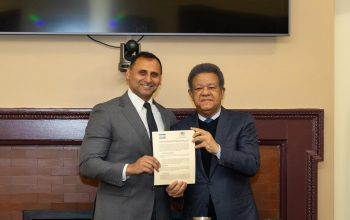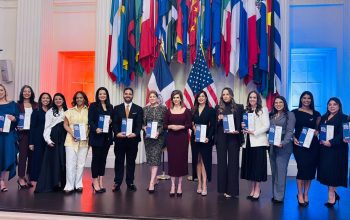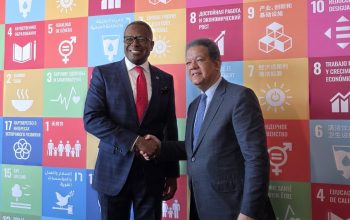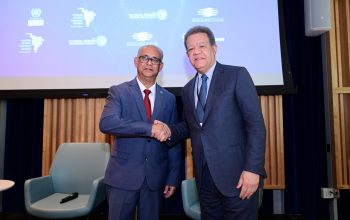news
OAS Mission congratulated Bolivians for their high turnout in the referendum and makes recommendations for future processes
February 23, 2016
The Electoral Observation Mission of the Organization of American States (EOM / OAS) in Bolivia, headed by the former president of Dominican Republic, Dr. Leonel Fernández, congratulated the Bolivian people “for their high turnout, civic spirit and democratic sense” expressed in the constitutional referendum on Sunday, February 21st, in this South-American country.
In its preliminary report on the assembly and development of the
elections, the Mission of the OAS stated that “although it may be the sixth time that a referendum is held in Bolivia, it is the first time that a transitory constitutional reform is defined through an exercise of direct democracy.”
It noted that since transition of power is an intrinsic exercise of democracy, it is understandable to consult the people about the possibility to decide on a key aspect of the institutional structure of the
country.
In its report, the OAS Mission confirmed that the polling stations opened on time and that a high percentage of them had the necessary election materials throughout the day. However, the report also noted particular
cases where the materials were not delivered on time and voting tables opened with delays.
In this regard, the EOM considered that it was appropriate to implement the Supreme Electoral Tribunal (SET) resolution of Bolivia under which any voting tables that opened with delays were still required to operate for a minimum of eight hours to ensure all registered voters could cast their vote.
Similarly, it regretted vandalism acts that caused the
cancellation of elections in 24 tables in the Department of Santa Cruz, where special elections will be held on March 6, by decision of the SET.
In addition, the OAS Mission found that the polling stations observed were integrated with assigned jurors, plus they counted with a significant presence of delegates from the different options, emphasizing the equal participation of men and women.
While it emphasized the improvement in technical capacity and
leadership of the SET, the OAS Mission was concerned about the absence of national observers in the process, something that they consider that should be taken into account for future processes.
In connection with the pre-election process, the Mission noted that supporters of the various parties demonstrated and voiced their arguments freely, although the tone of the campaign was aggressive. It also “observed asymmetry in access to the media
communication”, which is why it considers important that the SET sets the time slots devoted to propaganda.
Similarly, the OAS Mission noted the absence of direct public funding, which it considers affects equity in the race, and therefore reiterates the recommendation made in 2014, when it suggested discussing a law of political organizations that addresses the issue of access to media in an inclusive manner and campaign finance.
“Given the above, the EOM suggests making legislative changes and implement the necessary programs to enable the authority to disclose the preliminary results of the election with a high degree of accuracy and avoid questions about the process, as is usually done in other countries in the region,” the OAS Mission stated in its preliminary report.
The EOM consisted of 63 international observers and experts on electoral organization, media,
political analysis and mechanisms of direct democracy from 18 Member States and 2 Observer States of the OAS.







